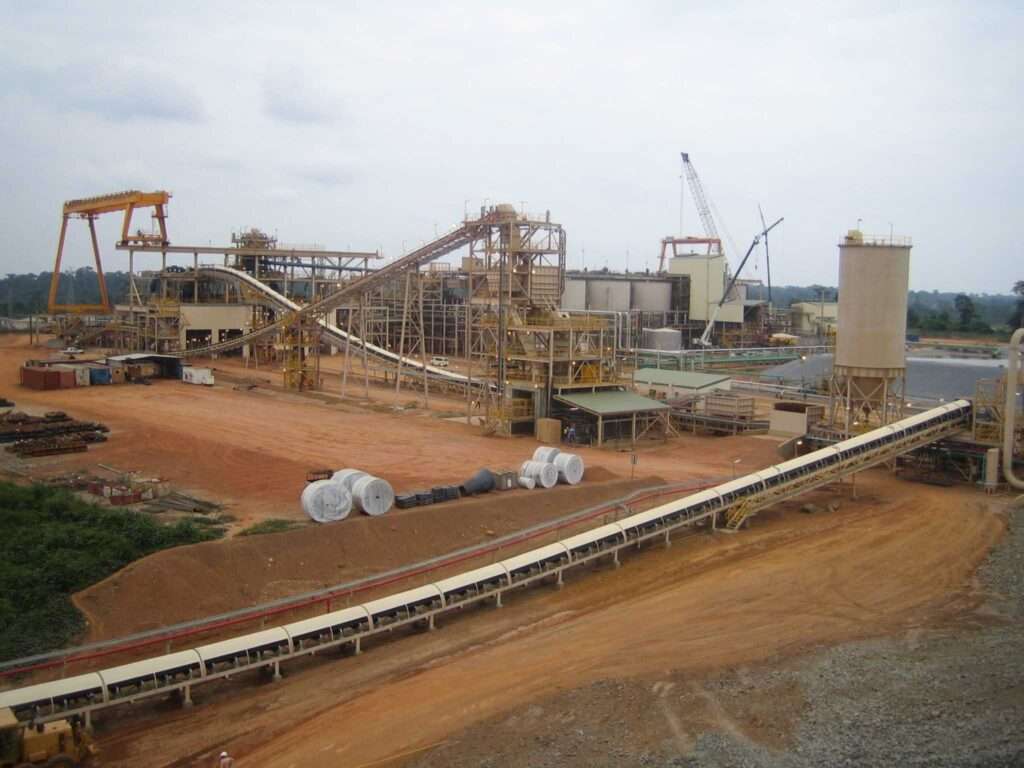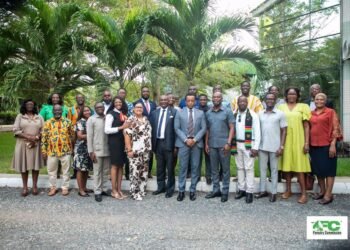The Institute of Economic Affairs (IEA), a leading public policy institute in Ghana, has expressed deep concern over the proposed sale of Newmont’s Akyem Gold Mine Project to China’s Zijin Mining Group for US$1 billion.
In a strongly worded press release, the IEA described the deal as “flawed in several respects,” warning that it is detrimental to Ghana’s interests and calling on the government to reject it.
According to the IEA, the sale violates the terms of the project lease signed between the Ghanaian government and Newmont on January 19, 2010.
It pointed out that the lease, which is set to expire in January 2025, allows for a transfer of rights, but only for the unexpired term, and requires the government’s consent for any transfer.
The IEA contended that any extension of the lease beyond the expiration date requires mutual agreement between the government and Newmont.
The institute also argued that no such agreement has been reached for a transfer or extension of the lease to Zijin, rendering the sale legally questionable.
“As far as the IEA is aware, Newmont and the Government have not reached any agreement for the mine to be transferred to Zijin for the unexpired term of the lease, i.e. up to 19th January 2025.
“The IEA is also not aware that Newmont has evoked the extension clause and that the Government has agreed to such an extension. The IEA wishes to point out that apart from Newmont, no other company has an original locus or right in the extension of the Lease.”
The Institute of Economic Affairs (IEA)
Prioritization of Ghanaian Investors in Natural Resources Acquisition
Furthermore, the IEA disclosed that Ghanaian entities had also bid for the mine but were allegedly outbid by Zijin, asserting that the move contradicts President Akufo-Addo’s commitment, as outlined in his February 2024 State of the Nation Address, to prioritize Ghanaian investors in the acquisition of key national assets.
The IEA questioned why the government appears to be sidelining Ghanaian interests in favour of a foreign entity, especially in such a critical sector.
“The IEA wants to emphasise that the Akyem Gold Mine Lease itself was flawed at its inception in several respects. In particular, the royalties and taxes payable by Newmont were not appropriately quantified as is expected of such agreements.
“Moreover, the Agreement is not materially different from other colonial-type agreements that cede Ghana’s mineral rights to foreign companies on a concession basis, enabling them to keep the lion’s share of the products, while Ghana receives only paltry sums as royalties and taxes.”
The Institute of Economic Affairs (IEA)
The IEA labelled the Akyem Gold Mine lease as another example of this pattern, where Newmont retains the lion’s share of the mine’s output, while Ghana’s returns remain paltry.
The IEA estimated that the Akyem Mine produces an average of 11.4 tonnes of gold per year (equivalent to 402,123 ounces), which, at an average market price of US$2,600 per ounce, would yield approximately US$1.05 billion annually.
It pointed out that allowing Zijin to purchase the mine for US$1 billion would, therefore, mean the wealth generated would largely accrue to Newmont, while Ghana continues to receive only limited payments through taxes and royalties. The IEA warned that this deal would significantly shortchange the country.
Lessons from Canada and the Call for National Security Protection
Moreover, the IEA pointed to international precedents to underscore its concerns, citing Canada’s recent decision to limit Zijin’s stake in its mining sector, citing national security concerns.
“The IEA wants to draw attention to the fact that even Canada, where Zijin is also seeking to invest in the domestic critical minerals sector, and planning initially to buy a 15% stake in Canadian copper company, Solaris Resources, has decided to limit Zijin’s stake in the interest of Canadian national security.”
The Institute of Economic Affairs (IEA)
The institute urged Ghana to take a similar stance, recognizing the strategic importance of its mining sector and the need to safeguard its economic sovereignty.
While clarifying that it does not oppose foreign investment per se, the IEA insisted that Ghana must retain dominant ownership of its critical sectors, especially in mining.
“Allowing Zijin to take over the Akyem Mine not only undermines our national interests but also sets a dangerous precedent for foreign dominance in our key sectors,” the statement read.

A Call for a New Paradigm in Ghana’s Resource Management
The IEA also proposed a comprehensive shift in the way Ghana manages its natural resources. To maximize the country’s development potential and tackle poverty, the IEA called for the abandonment of contracts that mirror colonial-era concessions.
Instead, the institute advocated for production-sharing agreements and more equitable terms that would ensure the majority of the wealth generated from Ghana’s resources remains within the country.
The IEA emphasized the need to build local capacity by resourcing the Geological Survey Department to map out Ghana’s mineral deposits, which could serve as collateral for raising capital to fund mining operations.
In addition, the institute proposed strengthening the training of Ghanaian mining engineers to manage the sector using environmentally sustainable practices.
Urgent Constitutional Reforms and Governance of Resources
As part of its recommendations, the IEA proposed two major constitutional reforms to improve the governance of Ghana’s natural resources and reduce corruption.
First, the institute called for the amendment of Article 257(6) of the Constitution, which vests the country’s natural resources in the President.
The IEA argued that this provision grants too much discretionary power to the President, allowing resources to be signed away without sufficient oversight.
It recommended that all natural resources be vested in the state and that all major contracts require parliamentary ratification as outlined in Article 268(1).
Second, the IEA proposed that the Minerals and Mining Act, 2006 (Act 703), be amended to prevent governments from signing large-scale contracts six months before the end of their terms.
The institute admonished that the current system enables last-minute deals that may serve personal or partisan interests rather than the nation’s.
A Paradigm Shift for Ghana’s Future
In closing, the IEA invoked the words of Rwandan President Paul Kagame: “If the Owners of Natural Resources Go Around Begging, Then You Should Know There’s Something Wrong with Their Minds.”
The institute stressed that Ghana must no longer sell its birthright for short-term gains and must instead use its natural resources to create jobs, wealth, and technical capacity for its people.
The IEA’s call to action is clear: Ghana must assert full ownership over its natural resources and reject the deeply flawed sale of the Akyem Gold Mine to Zijin.
This, the institute argued, is the only path to sustainable economic development and the eradication of endemic poverty in the country.
READ ALSO: Law Lecturer Demystifies Supreme Court’s “Exclusive Jurisdiction” to Interpret Constitution























